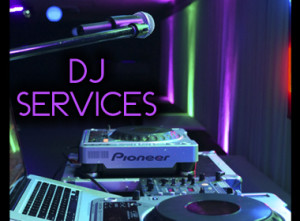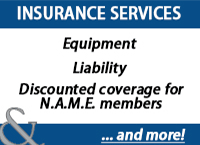
By Gregg Hollmann, “Party Professional”
In addition to running a mobile DJ entertainment company, I work as a Business Broker for Sunbelt Business Brokers. Similar to the way that real estate agents help a homeowner sell and market their residence, business brokers assist a business owner in selling and marketing their business. In this article, I will provide tips for planning the sale of a DJ business and maximizing its value.
First, let me say that acquisitions in the DJ industry are relatively rare. The main reason is that most of our businesses are one person operations with a “key person” who does most of the work and is the face of the company. In other words, if John, the owner and sole DJ at “John’s DJ Service” decides to retire, there isn’t much of a business left. Rather, the value of John’s DJ Service is the liquidation value of his equipment. Regrettably, the customer lists and relationships with banquet managers have virtually no value with John out of the picture.
For a DJ business owner who toils 25 years or more building a successful business, this thriving enterprise should have a significant value and represent a nice portion of the owner’s net worth. However, advance planning is required to monetize the value of a business. The reality is that most DJs who exit the industry do not sell their business as a “going concern” but rather close up shop and liquidate their assets for pennies on the dollar.
Cash Flow is King
Small businesses that are “going concerns” (i.e., that are currently operating) are typically valued on multiples of cash flow. Regarding cash flow, in business brokerage the specific metric used is “Sellers Discretionary Cash Flow” which is net profit plus owners’ compensation plus the add-back of non-cash expense (like depreciation) and any personal expenses being run through the business. Conceptually, this cash flow is the amount of money that an owner takes out annually representing profits and salary.
As a hypothetical example, Rob’s DJ Service had a 2014 profit on its tax return of $25,000. Rob paid himself a salary of $24,000 for the year. Depreciation expense on past equipment purchases was $2,000. Rob also used the business to make $10,000 of payments for his son’s tennis lessons. Thus, Sellers Discretionary Cash Flow would be $61,000 ($25,000 profit + $24,000 owners’ compensation + $2,000 depreciation + $10,000 personal expenses).
In valuing a company, a multiple would be applied to the cash flow figure. In recent years and with a somewhat depressed market, the multiple is generally about 2 or 3 times for a company with strong fundamentals. Therefore, the indicated value for Rob’s DJ Service would be between $122,000 ($61,000 times 2) and $183,000 ($61,000 times 3). Additional value would be generated by any real estate owned by the company. Note: DJ equipment would not likely add value to the sales price, as it is this equipment that is generating profits/cash flow to the business, and its value has already been captured by applying a multiple to cash flow.
Just like Wall Street, the market for small businesses ebbs and flows with “Bull” and “Bear” markets. The 2 to 3 times cash flow multiple reflects current market conditions, but varies over time. With banks still reluctant to make loans, the market for small business re-sales is currently slow.
Another important concept is that acquirers of small businesses rarely pay for potential. They pay for past results and actual cash flow. While it may be true that a new, motivated owner will achieve better results than you, you should not expect to receive any value from potential.
A trickier point to consider for DJ companies is whether the prospective acquirer of the business is a DJ. For example, imagine that the seller performed 50 weddings for $75,000 in revenues. Would the acquirer be able to step in and DJ these 50 weddings? If not, the pro-forma cash flow of the business could be dramatically lower under new ownership. Another scenario is that the non-DJ acquirer buys the business, but then hires you as a full or part-time employee/DJ for a particular amount. This scenario would have its own cash flow computation.
In planning for the sale of your business, it is best assumed that the prospective buyer is not a DJ and is purchasing the business with the idea of managing and optimizing its operations.
Single Op Versus Multi Op Valuation
The companies that stand the best chance to be sold are multi-operations that have systems, processes, and a strong brand name that supersedes the personality of the owner/operator.
As an example of a salable mobile DJ business, take Mike Walter’s New Jersey-based operation Elite Entertainment. In his book “Running Your Multi-Op,” Mike wrote about how in the heat of wedding season, he was able to enjoy a vacation to Germany for Oktoberfest and the business ran itself. In his absence, Elite performed at 80 events and continued to generate solid sales.
In the unlikely event that Mike ever decided to sell Elite, while the business wouldn’t be quite the same without him, a new owner could walk into an immediately profitable company with a strong name.
Earlier, I mentioned that single operators would find it difficult to generate much value beyond the liquidation value of their DJ gear. One possible option for a business-minded single op would be to groom a successor DJ, teaching him or her the ropes and eventually selling the business to this individual.
Tips for Preparing Your Business for Sale
To maximize the value of your business in a sale, you must plan ahead. I recommend 3-5 years in advance. During this interval, you have time to “dress the bride.” Some specific recommended strategies are:
-
Keep Great Financial Records - the more details, the better. Buyers want to see these, and are put at ease by a transparent, well-organized company.
-
Report As Much Income as You Can - Buyers will ask to see tax returns and of course will want to see profits. Many small business owners seek to minimize their taxes by minimizing reported income through a variety of methods. Keep in mind that every extra dollar of reported income will be subject to a multiplier effect in valuing the business. If you are not reporting cash income, do not expect to be paid any value on this unreported income.
-
Grow Your Business - buyers are seldom interested in stagnant or sinking enterprises! Drive sales and profit growth at your company to maximize its appeal. During the listing process, do not take your foot off the gas pedal.
-
Begin the Delegation Process - if your company has a strong key person, begin restructuring responsibilities from this person to other team members. Develop and enhance your company’s training program, employee handbook, website and Social Media programs.
-
Increase Your Curb Appeal - Prospective buyers will want to tour your operations. Wow them with a beautiful office and well-maintained equipment.
-
Consult with a Local Business Broker - Most business brokers will provide a free, no-obligation valuation and can evaluate your financial records to compute cash flow.
In Conclusion
Owning a profitable DJ company is great. Just don’t overlook the potential value in selling your business some day. You could be leaving a lot of money on the table.
As my business coach frequently reminds me, it’s important to spend time working on your business, and less time working in your business.



